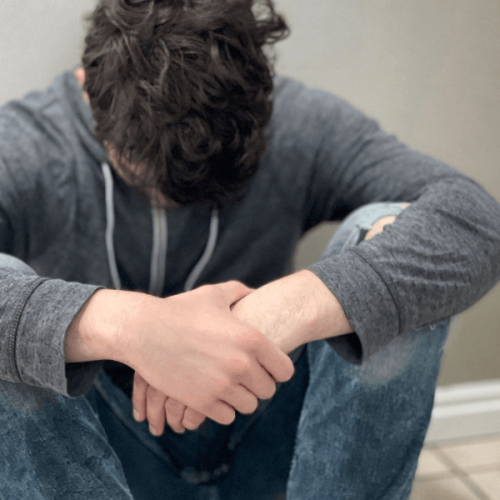Depression Treatment Center in Dallas, TX for Teens and Adolescents
Teenage Depression Treatment At BasePoint Academy
BasePoint Academy, a beacon of hope for struggling adolescents, is conveniently located near the vibrant city of Dallas, Texas. With three dedicated treatment centers in Arlington, Forney, and McKinney, we are ideally positioned to serve teens from these communities as well as those from nearby towns and cities. We understand that every teen boy and girl is unique, and we take pride in providing individualized, evidence-based, and holistic care.
Our specialty lies in treating various forms of depression in young people, including Major Depressive Disorder (MDD), Persistent Depressive Disorder (Dysthymia), Bipolar Disorder, and Seasonal Affective Disorder (SAD). We also offer help for more specific conditions like Atypical Depression, Psychotic Depression, Premenstrual Dysphoric Disorder (PMDD), Situational Depression, Substance-Induced Depression, and Treatment-Resistant Depression. Our professional and empathetic team is committed to supporting and encouraging youngsters through their journey to recovery, ensuring that every youth under our care feels safe, supported, and understood.
What Is Depression?
Clinical depression is a serious mood disorder and goes far beyond feeling sad. It is also called major depression or major depressive disorder. Depression causes severe symptoms and significantly affects how a person handles daily activities and how they feel. Diagnosis of depression must fit the criteria outlined in the Diagnostic and Statistical Manual of Mental Disorders 5th edition (DSM-5).
This is a diagnostic tool published by the American Psychiatric Association. To be diagnosed with depression, the symptoms must be present for at least two weeks. Although the symptoms vary depending on the type of depression, in general, they include having low energy, thoughts of self-harm or suicide, changes in eating behavior, and sleep changes to name a few.
Teen Depression Treatment Coverage at BasePoint Academy
Our complimentary depression assessment with a licensed clinician provides a personalized recommendation for the appropriate level of care for your teen struggling with depression. If you’re looking for specialized support, ask about our expert teen depression treatment in Dallas. We also offer assistance in verifying your insurance coverage levels.
Call us today to schedule a complimentary same-day assessment at (972) 357-1749 or fill out our inquiry form to learn more about our teen depression treatment in Dallas.
Teen Depression Treatment Inquiry Form
Does Insurance Cover Depression Treatment for Teens?
Yes, health insurance policies that have been issued since 2010 must offer some level of coverage for depression treatment options for teenagers who are beneficiaries of your policy. In 2010, the Affordable Care Act (ACA) was passed and it mandates that all health insurance policies cover essential health services, of which mental health treatment is one.
While every policy must cover essential health services, they do not all offer the same level of coverage. In fact, depression treatment is typically covered by benefits of BCBSTX plans, Aetna plans, Cigna plans, and UHC plans. It is important to verify your insurance coverage to gain a better understanding of the benefits and limits of treating teen depression. The easiest way to do that is to call BasePoint Academy at (972) 357-1749. Our team is committed to delivering expert depression treatment for teens tailored to your teenager’s needs, and we’ll work directly with your insurance provider to help maximize your coverage and minimize out-of-pocket costs.
Different Types of Clinical Depression
There are several different types of clinical depression with different symptoms. With care and treatment, your teenager can overcome the symptoms of depression and go on to live a long and productive life. The following are some of the types of depression, but it is not a complete list.
Major Depressive Disorder (MDD)
Major depressive disorder (MDD) is a severe form of depression and one of the most common forms. Signs of teen depression include a depressed mood, lack of energy, feeling hopeless, difficulty concentrating, and sleep disturbances. Your teenager may not have interest in the activities they once enjoyed and you may notice weight fluctuations in the last weeks.
Persistent Depressive Disorder (Dysthymia)
This condition used to be called dysthymic disorder or dysthymia. Generally, the symptoms of persistent depressive disorder (PDD) are less severe than major depression but they typically last much longer. Some report experiencing symptoms of PDD for two years or more. The symptoms make it difficult to enjoy a joyous occasion and often interfere with work and relationships.
Bipolar Disorder (Bipolar Depression)
This condition used to be called manic depression or manic depressive illness. Bipolar disorderin teens is characterized by episodes of depression during which your adolescent may feel sad, hopeless, or indifferent. These periods are broken up by manic episodes in which they experience an elevated mood and feel very happy with a marked increase in activity.
Seasonal Affective Disorder (SAD)
This condition is also referred to as seasonal depression. It is a form of major depressive disorder (MDD) that generally is found during the fall and winter months. Seasonal affective disorder is triggered by the change of seasons and leaves your teenager feeling sad, with a loss of interest in their usual activities.
Atypical Depression
Symptoms of this condition vary slightly from major depressive disorder. The condition is also called major depressive disorder with atypical features. The significant difference is that teenagers with atypical depression experience a temporary improvement in their mood in response to a positive event. You may also notice your teen has an increased appetite and has developed a sensitivity to rejection.
Teenage Onset Depression (Early-Onset Depression)
Although depression can begin at any age, early-onset depression describes depression in childhood and adolescence. Late-onset typically begins near 65 years or older. Interventions to treat early-onset depression are often longer than those used to treat late-onset depression. In both cases, medication is typically part of the treatment plan and is customized to address the unique symptoms of your teen.


What is a Depression Treatment Center in Dallas for Teenagers?
Teen depression is a complex issue that requires specialized care. As such, depression treatment for teens is best handled by licensed mental health professionals who have extensive experience in managing a wide range of mental health conditions that can lead to depression in teenagers. In today’s fast-paced society, teenagers grapple with various pressures from school, sports, and social circles.
These stressors are often triggers for teenage depression and can lead to a major depressive episode in a teenager. This is particularly true for those undergoing hormonal changes, experiencing shifts in brain chemistry, dealing with the aftermath of early childhood trauma, or managing an underlying medical condition that heightens their risk for depression.
At BasePoint Academy, we offer comprehensive teenage depression treatment in Dallas, TX, designed to help your teen navigate these challenges. Our experienced mental health professionals are equipped with the necessary tools and resources to provide the best possible care. We offer tailored programs for depressed teens, based on their unique needs and circumstances.
Our approach to treating depression in teenagers is holistic, empathetic, and evidence-based. We not only focus on alleviating symptoms but also aim to equip teens with coping mechanisms to manage stress and prevent future depressive episodes. If you’re wondering how to help with teenage depression, rest assured that our team is here to provide the necessary support and guidance.
Remember, the journey to recovery from teen depression is not a path to be walked alone. With our professional help, your teenager can regain control of their life and look forward to a brighter future.
Types of Treatment Programs for Teen Depression
Treatment for teenage depression can be an intensive outpatient depression program or depression-focused PHP treatment. BasePoint Academy offers teenagers highly structured and effective outpatient programs that allow teens to receive the help they need and still return home at night to practice the skills they’ve learned.

BasePoint Accepts health Insurance for Teen Depression Treatment
We accept most major health insurance providers in Texas and can check your depression treatment coverage levels on your behalf
TEENAGE DEPRESSION TREATMENT IN DALLAS, TX
Base Point Academy has several treatment facilities in the Dallas-Fort Worth area, including in Arlington, Forney, and McKinney, Texas. Each of these luxury teen mental health facilities offers the same level of care from licensed mental health professionals whose focus is providing teenagers with the tools and resources they need to heal and support sustainable recovery from depression and other mental health conditions.
- Arlington, Texas: 3900 Arlington Highlands Blvd, Suite 237, Arlington, TX 76018
- Forney, Texas: 713 W Broad St, Suite 200, Forney, TX 75126
- Frisco, Texas: 8275 Judges Way, Suite 100I, Frisco, TX 75036
- McKinney, Texas: 4733 Medical Center Drive, McKinney, TX 75069

Types of Therapy and Counseling for Depressive Disorder in Teens
Therapy and depression counseling are crucial components of depression treatment. There are several types to help to treat depressive disorders in teens. The following are examples and include, but are not limited to, cognitive behavioral therapy, family therapy, group therapy, and individual therapy.
Psychodynamic Therapy Techniques for Depression
Psychodynamic therapy strategies help teenagers gain a greater self-awareness of their thoughts and emotions and thus help to decrease symptoms of depression and reduce emotional suffering. Adolescents today experience a unique set of stressors that are far different than previous generations.
For some, managing these pressures can seem impossible. Psychodynamic therapy helps teenagers evaluate conscious and unconscious relationship patterns and how they affect their behavior.
Cognitive-Behavioral Therapy (CBT) for Teen Depression
Cognitive behavioral therapy for teens is one type of behavioral therapy or talk therapy that is a short-term interventional strategy. It helps teens explore the connections that occur between thoughts, emotions, and behaviors. This evidence-based approach has been scientifically proven to be effective with teen depression.
Dialectical Behavior Therapy (DBT) for Teen Depression
Dialectical behavior therapy for teens is a form of talk therapy that blends opposite ideas to help teenagers accept life within the present parameters and identify healthier coping skills. It empowers teens to address their pain and cultivate desirable behaviors while establishing a baseline for resiliency.
Experiential Therapy for Depression in Teenagers
Experiential therapy engages teens in active participation, which is more interactive than traditional talk therapy. The evidence-based approach helps teenagers address their thoughts and emotions that are centered on past events while establishing healthier thought patterns to reduce symptoms of depression. Several effective therapeutic modalities may be used, including art therapy, drama therapy, and music therapy.
Family Therapy for Teenagers with Depression
Many of the teenagers at BasePoint Academy engage in comprehensive family therapy to give everyone the opportunity to work through challenges and difficulties in a safe space. Highly qualified therapists and counselors help families and teens navigate issues that are common when teens are depressed. This can include disruptive behaviors, relationship problems, self-esteem issues, and grief.
Group Therapy for Adolescents with Depression
Group therapy programs are highly effective with young adults who benefit from long-term interactions in a group setting. This helps teenagers develop new skills and habits including developing healthy coping and interpersonal skills. Group therapy at BasePoint Academy is led by qualified therapists, giving teens the opportunity to develop in a like-minded and supportive environment.
Individual and Person-Centered Depression Therapy for Teens
Nearly all teenagers at BasePoint Academy are involved in individual one-on-one therapy with counselors. Teenagers also may have person-centered therapy for depression during which counselors use non-directive talk therapy to help teenagers discover personal solutions. This enables adolescents to take charge and learn strategies they can use moving forward while affecting change in their lives.


CAUSES OF DEPRESSION iN TEENS
Understanding the precise causes of adolescent depression can be complex, as every teenager has unique experiences and reactions. However, there are several common factors that can contribute to the onset of depression among teenagers. Our Dallas-based outpatient program includes individual therapy sessions, which play a crucial role in identifying and addressing these causes from a holistic perspective.
Causes of teen depression can range from biological to environmental factors. These include family history, mental health disorders, early childhood trauma, and recent stressful life experiences. Depression in youth is an increasingly prevalent issue, and our mission at BasePoint Academy is to provide comprehensive support and treatment for teens dealing with this challenging mental health condition. We aim to empower them to understand their feelings and equip them with the skills to navigate their path to recovery.
Some of the Most Common Causes of Teen Depression
- Changes in the body’s hormones: One significant cause of depression in teenagers is hormonal changes. As teens grow, their bodies undergo numerous transformations, including shifts in hormone levels. These changes can affect mood and emotions, potentially leading to depression.
- Changes in brain chemistry: Changes in brain chemistry are another contributing factor. Neurotransmitters, which are chemical messengers in the brain, can influence mood and behavior. An imbalance in these chemicals can result in symptoms of depression.
- Early childhood Trauma: Early childhood trauma, such as neglect, abuse, or loss, can also trigger depression in youth. Such experiences might cause long-lasting emotional scars that manifest as depression during adolescence.
- Inherited traits: Inherited traits or genetics play a crucial role as well. If a close family member has had depression, a teenager may be more likely to develop it.
- Negative thinking patterns: Negative thinking patterns significantly contribute to depression among teenagers. Teens who tend to view the world pessimistically or feel overwhelmed by life’s challenges are more susceptible to depressive symptoms.
- Family history: Family history, particularly a history of depression or other mental health disorders in the family, can increase a teen’s risk of developing depression.
- Medical conditions: Certain medical conditions, especially chronic illnesses, can lead to depression in teens. The ongoing stress and challenges of dealing with a chronic condition can trigger depressive symptoms.
- Technological environment: Finally, today’s technological environment can contribute to depression in teens. Excessive screen time, cyberbullying, and social media pressure can all negatively impact a teenager’s mental health.
Understanding these causes is the first step towards managing and overcoming teen depression. At BasePoint Academy, we’re here to help navigate this journey, providing professional guidance and empathetic support throughout the process.
Warning Signs And Symptoms Of Teenage Depression
It may be difficult to identify the signs and symptoms of depression in teens since teenagers are typically moody. Some teens are not aware they are depressed, but early treatment is essential to prevent the worsening of symptoms and long-term effects. Many times the first thing parents notice is their teenager is more withdrawn than usual.
It is crucial to be vigilant and pay attention to your teenager’s behaviors. A mental health depression condition is internalized. In other words, it causes more disturbance in the teenager’s life than in the lives of the people around them. For this reason, it can take some time for others to recognize the symptoms and sometimes the teenager doesn’t realize that their emotional responses are not normal. Signs of depression in teens include, but are not limited to:
- Extreme or prolonged sadness
- Irritability
- Low self-esteem
- Unexplained or explained feelings of guilt
- Sensitivity to failure or rejection
- Loss of interest or motivation
- Isolation
- Restlessness
- Feelings or expressions of worthlessness
- Poor grades or unusual drop in academic performance
- Outbursts of anger
- High-risk for self-harm
- Insomnia
- Changes in appetite
- Unexplained weight gain
- Lethargy
- Substance use and/or abuse
- Thoughts of suicide or death


DON’T IGNORE THE SYMPTOMS
- Individual and Family therapy sessions
- Various psychotherapy approaches including expressive art, role playing, and guided imagery
- Cognitive Behavioral Therapy (CBT)
- Experiential Therapy
- Solution-Focused Therapy (AKA Person-centered Therapy)
- Motivational Interviewing (MI)
- Trust Based Relational Intervention (TBRI)
- Skills coaching and academic support
- Highly trained, qualified, and dedicated licensed therapists
- Life skills management and group therapy
- Relapse prevention
- Suicide prevention
- Medication Management (antidepressant medications as well as other prescriptions)
- Mindfulness and Meditation
Which Health Insurance Providers Cover Depressive Disorder Treatment for Teenagers?
There are a wide variety of health insurance providers that cover depressive disorder treatment in teenagers. The ACA mandates that all health insurance policies offer some level of coverage to treat mental health conditions and substance use disorders. You can call BasePoint Academy to verify your insurance coverage since not all policies offer the same benefits and ensure access to a trusted depression treatment center Dallas families rely on for depression treatment for teens.
The ACA covers insurance companies of all sizes. Small regional companies must offer coverage for essential health services in the same way as larger companies. Some insurance companies include Molina Healthcare, UnitedHealthcare, Anthem, Humana, Aetna, and Cigna. Other companies like Carelon Behavioral Health, focus on providing mental health treatment for teenagers.
Depression Testing and Assessment for Teen Boys and Girls
Adolescent depression testing and assessment is a crucial part of identifying conditions and developing an individualized and evidence-based plan of care. There are several online depression tests that give you instant results. However, these results can give you a false positive or a false negative since they should be administered and interpreted by an experienced mental health professional.
BasePoint Academy offers a complimentary assessment for your teenager to identify teenage challenges they may be having with mental health conditions like depression. Not all teenagers exhibit classic signs of depression, so undergoing a complimentary assessment with an experienced mental health professional can ensure your teenager gets the help they need, when they need it.
What is the Adolescent Depression Treatment Program Admissions Process?
An adolescent depression treatment program begins with an admission process that includes several steps to ensure your teenager receives the appropriate care and support using a customized treatment program. The specific steps and order of the steps can vary between treatment centers. This is an overview of what you can generally expect:
- Initial Contact: During the initial contact, the insurance coverage is verified and an admission specialist will determine if prior authorization is required before treatment begins. The treatment center can also help guide gathering the documents necessary for prior authorization.
- Assessment and Evaluation: Some centers, like BasePoint Academy, offer a complimentary same day assessment to identify the teenage challenges your son or daughter may be experiencing. From this assessment and a further evaluation when you decide to utilize the program, a customized teen depression treatment protocol will be developed.
- Admissions Coordination: At BasePoint Academy, admission into an outpatient program is coordinated with our admission specialists. You are given step-by-step instructions on the type of documentation you might need to provide, the items that your young adult should and should not bring with them to the treatment center, and a thorough understanding of the customized treatment plan developed for your teenager.
- Orientation and Program Introduction: On the first day, you and your adolescent go through an orientation and introduction to the outpatient programs to help increase your and your teenager’s comfort level with where they will be during the day.
- Active Participation and Progress Monitoring: During treatments, it is expected that your teenager and family are actively participating in treatment. It is also expected that our team will monitor your son or daughter’s progress and make adjustments to the customized treatment plan as necessary.
How Much Does Depression Treatment for Teens Cost in Dallas, Texas?
The cost of treatment for teenage depression in Dallas, Texas, varies depending on several important factors. These factors include the intensity and length of the therapy, whether the program is a structured outpatient treatment program or an inpatient/residential care program, and your insurance coverage level.
BasePoint Academy works together with many of the major insurance companies and you to optimize the care your teenager receives. You can quickly and easily check your insurance and learn about the out-of-pocket costs you might expect by calling BasePoint Academy. In addition to verifying insurance coverage, our admission specialists will also determine if prior authorization is needed before treatment can begin.
BasePoint Academy offers a complimentary assessment for your teenager to identify teenage challenges they may be having with mental health conditions like depression. Not all teenagers exhibit classic signs of depression, so undergoing a complimentary assessment with an experienced mental health professional can ensure your teenager gets the help they need, when they need it.
Therapy, Counseling and Help for Teen Depression in Dallas, TX
Depression is a serious mental health disorder that can affect people of all ages, including teenagers. At our Dallas-based center, we specialize in providing comprehensive therapy for depression, specifically tailored to meet the unique needs of young people.
We understand that depression comes in many forms, and we’re equipped to handle a variety of conditions. This includes Major Depressive Disorder (MDD), Persistent Depressive Disorder (Dysthymia), Bipolar Disorder, Seasonal Affective Disorder (SAD), as well as more specific forms like Atypical Depression, Psychotic Depression, Premenstrual Dysphoric Disorder (PMDD), Situational Depression, Substance-Induced Depression, and Treatment-Resistant Depression.
Our team of professional and compassionate mental health experts is committed to supporting teenagers on their journey to recovery. We believe in providing individualized, evidence-based, and holistic care, with an emphasis on creating a safe and supportive environment where every teen feels understood.
If you’re seeking treatment for depression in Dallas, rest assured that our treatment center for teen depression is here to help. We’re dedicated to helping teens overcome the challenges of depression, equipping them with the tools they need to regain control of their lives.
For those searching for ‘therapy for teenage depression near me,’ our depression rehab center offers both in-person and online depression therapy sessions, ensuring accessible and convenient care for all. Our goal is to make the process of finding help for depression as easy and straightforward as possible.
Call Now: (972) 357-1749 for a Free Depression Assessment
Teen Treatment Programs and Therapies
Adolescent Mental Health Disorders We Treat
Statistics on Depression in Teen Boys and Girls in Texas
- National Alliance on Mental Health Illness – Texas:
- 1 in 6 youth aged 6 to 17 reported a mental health disorder each year.
- 314,000 aged 12 to 17 had depression.
- High school students with depression were twice as likely to drop out compared to their peers.
- Houston Public Media:
- Over 500,000 children in Texas were diagnosed with anxiety or depression in 2020.
- This was a 23% increase over the past few years.
- 2022 San Antonio’s Teen Mental Health Survey:
- 37% of surveyed teens felt unable to complete daily tasks.
- 24% turned to smoking, vaping, alcohol, or illicit drugs due to their symptoms.
- 59% indicated school as the top stressor negatively impacting their mental health.
- 51% highlighted COVID-19 as a significant stressor.
- Study by UT Southwestern published in Suicide and Life-Threatening Behavior:
- Nearly 50% of the youth treated for depression in Texas reported at least one suicide attempt.
- 90% had suicide ideation.
- A 2023 report from the Youth Risk Behavior Survey stated:
- 14.3% of male ninth-12th graders considered suicide in the past 12 months.
- 30% of female ninth-12th graders considered suicide in the same timeframe.
Contact BasePoint Academy for Teen Depression Therapy Today!
Has your teen exhibited any of the depression symptoms discussed here? Does your teen have any of the risk factors outlined above? If you are concerned about the mental health of your teenager, it’s time to contact BasePoint Academy, to discuss a depression treatment plan for your teen.






